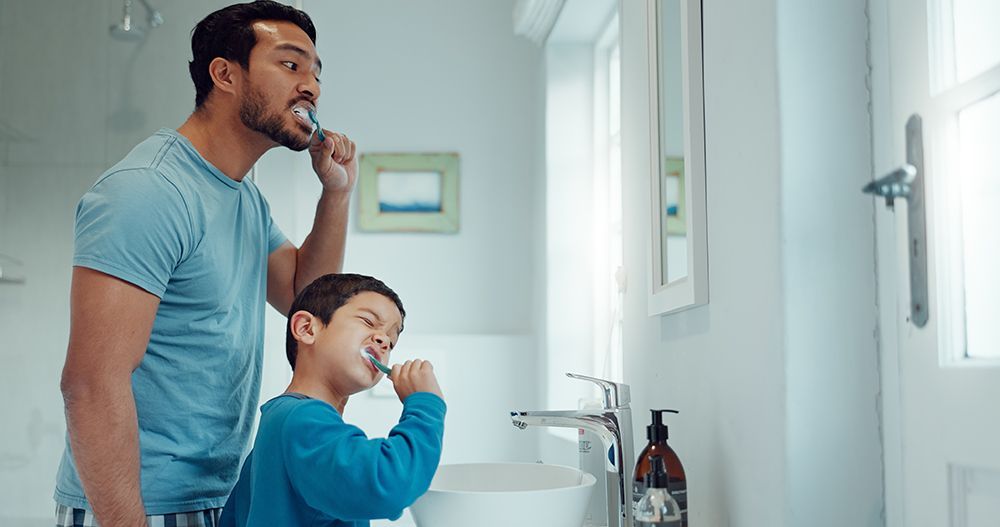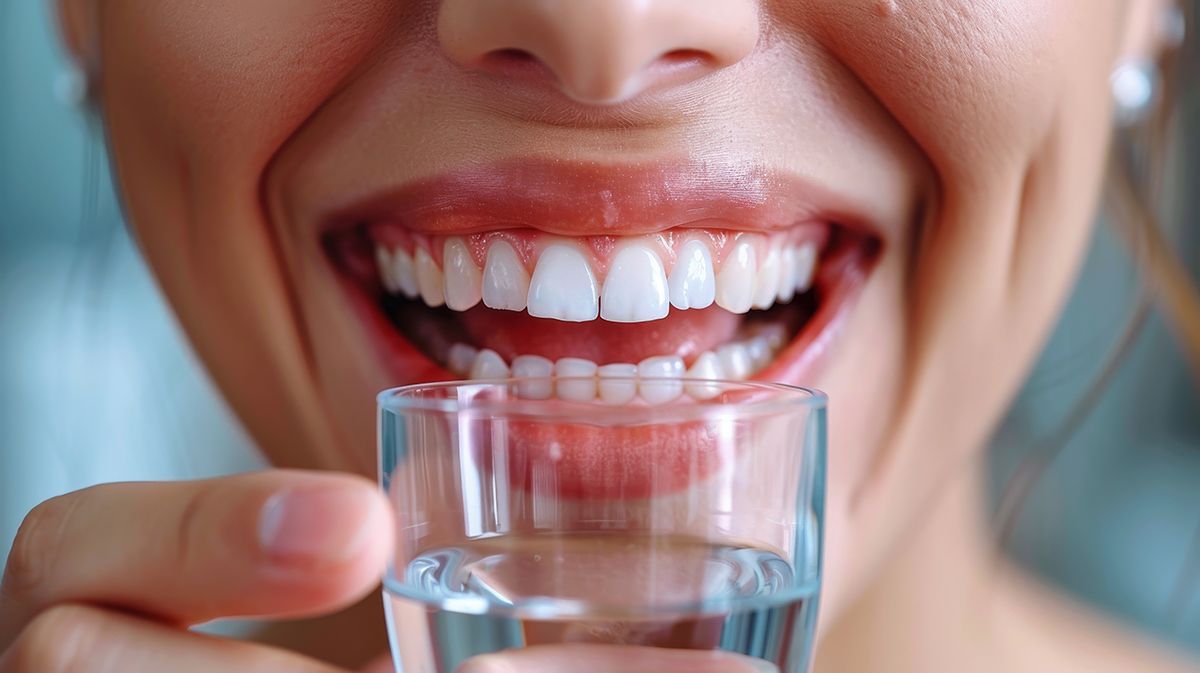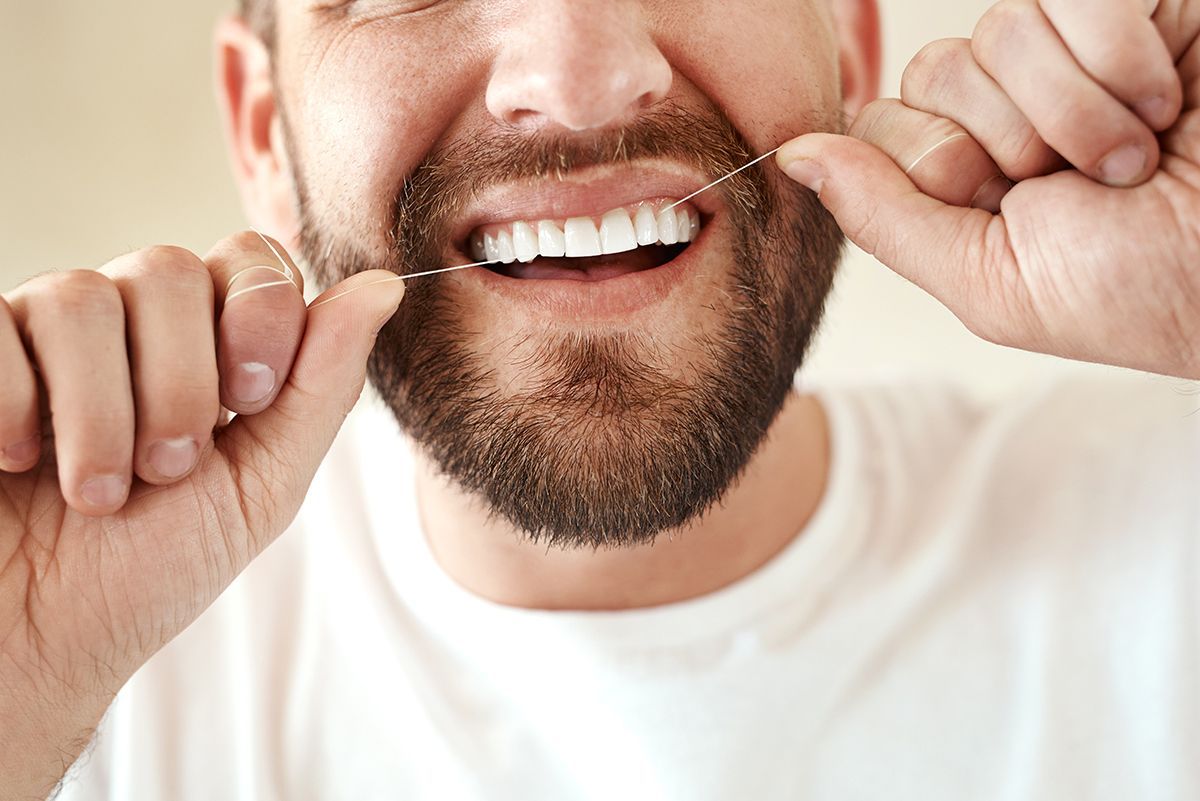How to Support Your Child's Oral Hygiene
Good oral hygiene in childhood sets the foundation for a lifetime of healthy teeth and gums. As a parent, you play a crucial role in shaping your child's dental habits, but we know this isn’t always easy. Between picky eaters, busy schedules, and resistance to brushing, helping children care for their teeth can sometimes feel overwhelming. However, with a little guidance and a few tips from
Oadby Dental Clinic, you can help your child develop strong oral hygiene habits that last a lifetime.
We’ll offer practical advice for parents on how to make oral hygiene fun, effective, and part of your child's daily routine.
Why Early Dental Care Matters
You may be wondering why it’s so important to care for baby teeth that will eventually fall out. The truth is, primary teeth are essential for a child's development. They help with chewing, speaking, and holding space in the jaw for adult teeth. Poor dental care in early childhood can lead to tooth decay, infections, and pain, which can affect a child’s overall health and well-being. In fact, untreated cavities can cause discomfort that impacts eating and even school performance.
Moreover, instilling good oral care habits at a young age will set your child up for long-term success. Studies show that children who learn proper oral hygiene techniques early on are more likely to carry those habits into adulthood, helping them prevent gum disease and cavities later in life.
The Basics of Oral Hygiene for Children
Before we share our tips, it’s important to understand what constitutes good oral hygiene for children at different ages:
- Infants: Even before teeth come in, you should gently wipe your baby’s gums with a soft, damp cloth after feedings. Once the first tooth appears, typically between 6 to 12 months, start brushing it twice a day using a soft, small-bristled toothbrush and water.
- Toddlers (1-3 years): As soon as teeth erupt, introduce fluoride toothpaste (a small smear or the size of a grain of rice) and continue brushing twice daily. Be sure to supervise your toddler, as they won’t have the dexterity to brush effectively on their own.
- Children (3-6 years): By age three, children can use a pea-sized amount of fluoride toothpaste. Continue to supervise brushing and teach them to spit out toothpaste rather than swallow it.
- Older Children (6+ years): Once your child can brush on their own, continue to monitor their technique. Children should brush for two minutes, twice a day, and floss daily once they have teeth that touch.
Now that we have the basics covered, let’s discuss some strategies to make oral hygiene enjoyable and effective for children.
Make Brushing Fun
Children are more likely to stick with a task if it feels like a fun activity rather than a chore. Here are a few ways to turn brushing into a positive experience:
- Let Them Choose Their Toothbrush: Allowing your child to pick out a toothbrush featuring their favourite cartoon character or in their favourite colour can make them excited about brushing. Look for a toothbrush with soft bristles and a small head for better reach and gentleness on their gums.
- Use a Toothpaste They Enjoy: Fluoride toothpaste comes in various flavours, from mint to fruity varieties. Find a flavour your child likes, but make sure it still contains fluoride for cavity protection.
- Incorporate Technology: There are plenty of apps and interactive videos designed to make brushing fun. Some electric toothbrushes even come with built-in timers and games that motivate kids to brush for the full two minutes.
- Sing a Song or Use a Timer: Create a brushing playlist or use a fun timer to encourage your child to brush for the recommended two minutes. You can even turn it into a family activity where everyone brushes together.
Sticker Charts and Rewards: Positive reinforcement works wonders! Create a sticker chart to track successful brushing sessions. When your child completes a week of brushing without reminders, reward them with a small prize or an extra bedtime story.

Teach Proper Brushing and Flossing Technique
While making oral hygiene fun is important, technique matters, too. Ensure that your child learns the proper way to brush and floss to maximise effectiveness:
- Brushing Technique: Teach your child to hold the toothbrush at a 45-degree angle to the gums. They should use gentle, circular motions rather than vigorous back-and-forth scrubbing, which can damage enamel and irritate the gums. Make sure they brush all sides of each tooth, including the front, back, and chewing surfaces.
- Flossing Technique: Once teeth start touching, flossing becomes essential to remove food particles and plaque between teeth where a toothbrush can’t reach. If your child finds traditional floss difficult to use, consider child-friendly floss picks, which are easier for little hands to manage. Show them how to gently slide the floss between the teeth and under the gumline without snapping it.
Establish a Routine Early
Like any habit, consistency is key when it comes to oral hygiene.
- Start Early: The earlier you introduce oral hygiene, the more natural it will feel for your child. Even if they resist at first, keep brushing and flossing part of their daily schedule. Eventually, it will become second nature.
- Set a Good Example: Children often mimic their parents’ behaviour, so make sure they see you practising good oral hygiene. Brush and floss alongside them to model the importance of these activities.
- Consistency is Key: Set a regular time for brushing, such as after breakfast and before bed. This helps children understand that brushing is a non-negotiable part of their daily routine, just like getting dressed or eating meals.
- Stay Patient: If your child is reluctant to brush or floss, try to stay calm and patient. Avoid turning it into a power struggle. Encourage them, offer choices (e.g., which toothbrush they want to use), and make the process as enjoyable as possible.
The Role of Diet in Oral Health
In addition to regular brushing and flossing, your child’s diet plays a significant role in maintaining a healthy smile.
- Limit Sugary Snacks and Drinks: Sugar feeds the bacteria in the mouth, which produce acids that attack tooth enamel, leading to cavities. Limit sugary snacks like candy, cookies, and sodas. If your child does indulge in sweets, encourage them to brush afterward or rinse their mouth with water.
- Encourage Crunchy Fruits and Vegetables: Apples, carrots, and celery are not only healthy but also help clean teeth by increasing saliva flow and scrubbing the tooth surfaces as they chew.
- Watch Out for Hidden Sugars: Some foods that seem healthy, like fruit juices and granola bars, can be packed with hidden sugars. Check labels and opt for low-sugar alternatives whenever possible.
- Offer Water as the Main Beverage: Water helps rinse away food particles and sugars that can lead to plaque buildup. Fluoridated tap water is even better, as it strengthens tooth enamel.
Schedule Regular Dental Check-Ups
Even with excellent at-home oral care, it’s crucial to take your child to the dentist regularly. At
Oadby Dental Clinic scheduling your child’s first dental visit with a
children’s dentist within six months of the first tooth erupting, but no later than their first birthday. After that, check-ups should happen every six months unless your dentist advises otherwise.
During these visits, the dentist will:
- Monitor the development of your child’s teeth and gums
- Provide professional cleanings to remove plaque and tartar buildup
- Offer fluoride treatments or sealants if needed to prevent cavities
- Address any concerns or answer questions you have about your child’s oral health
Dentists also play a crucial role in educating both parents and children about proper oral hygiene techniques, dietary recommendations, and how to avoid common dental issues, such as thumb-sucking or grinding teeth.
Addressing Common Oral Hygiene Challenges
Many parents face challenges when it comes to helping their children maintain good oral hygiene. Here are a few common concerns and solutions:
- My Child Hates Brushing: Some children simply dislike the sensation of brushing. Try using different types of toothbrushes (such as an electric one) or experiment with different toothpaste flavours to see if that helps. Be patient and offer encouragement rather than forcing the issue.
- My Child Is Afraid of the Dentist: Dental anxiety is common in children. To ease their fears, choose a paediatric dentist who specialises in treating kids and knows how to create a welcoming, non-threatening environment. You can also read books or watch videos about visiting the dentist to prepare them for what to expect.
- My Child Isn’t Brushing Properly: Many children rush through brushing or miss key areas of their mouth. Using a timer, brushing apps, or even a disclosing tablet (which colours plaque on teeth) can help them see where they need to brush more effectively.
Helping your child develop good oral hygiene habits is an investment in their future health and well-being. By making brushing and flossing a fun, routine part of their day, offering a balanced diet, and ensuring regular dental visits, you can prevent cavities and promote a bright, healthy smile.
Remember, you’re not alone in this journey. Your dentist is a valuable partner in guiding you and your child toward a lifetime of excellent oral health. Feel free to reach out to Oadby Dental Clinic with any questions or concerns as you help your child build these essential habits!



